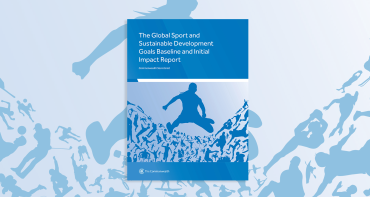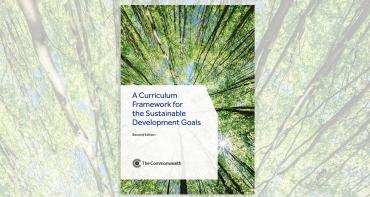The Commonwealth, in partnership with the Permanent Missions of Australia, Malta, Sierra Leone and Vanuatu, held a side event on disability inclusion in the workplace on the margins of the 37th session of the United Nations Human Rights Council in Geneva.

The Commonwealth, in partnership with the Permanent Missions of Australia, Malta, Sierra Leone and Vanuatu, held a side event on disability inclusion in the workplace on the margins of the 37th session of the United Nations Human Rights Council in Geneva. Sierra Leone’s Ambassador, Yvette Stevens, chaired the panel and led an informative discussion for the ‘Inclusion Matters: Access and Empowerment’ event.
“Disabled Persons should not be left behind in the implementation of the 2030 Sustainable Development Agenda. Article 27 of the CRPD, and SDGs address the employment of the disabled and should be the basis for action to ensure access to decent work by the disabled. All States need to intensify efforts in this regard, drawing from the existing good practices” stated Ambassador Stevens.
Fellow panellists included the Permanent Mission of Vanuatu’s Chargé d'affaires, Noah Patrick Kouback, Tonio Axisa from Malta’s Commission for the Rights of Persons with Disabilities and David Walji from the Commonwealth’s Communications Division.
The side event created space for discussion by Commonwealth member states to reflect and identify challenges and best practice in the implementation of Article 27 (Work and employment) of the Convention on the Rights of Persons with Disabilities (CRPD).
This included greater understanding on the challenges, opportunities and best practice in the implementation of the CRPD with specific focus on the implementation of Article 27.
Representatives from the Australian, British, Fijian and Maltese missions took part in the discussion, which highlighted the benefits and drawbacks of technology, the role of education in and around the workplace in regard to persons with disabilities and the importance of not regarding disability as limiting or something to overcome.
For David Walji, it is important not to regard disability as limiting: “When I became disabled, I had to contest the idea, both to myself and others, that people with disabilities are less productive. I did not want to be stigmatised as less capable to my employer and colleagues”.
Currently, 47 out of 53 members of the Commonwealth are parties to the Convention. The Secretariat’s Human Rights Unit supports member states to implement Article 27, including technical assistance and capacity development.
Justin Pettit from the Commonwealth Secretariat’s Human Rights Unit emphasised that the Commonwealth Charter makes reference to the commitment found in Article 27 of the CRPD to ‘equality and respect for the protection and promotion of civil, political, economic, social and cultural rights, including the right to development, for all without discrimination on any grounds as the foundations of peaceful, just and stable societies.’
In April 2018, the UK will host the Commonwealth Heads of Government Meeting (CHOGM) under the theme: ‘Towards a Common Future’ and is focused on building on the strengths of the Commonwealth to ensure this unique organisation is responsive to global challenges and delivers a more prosperous, secure, sustainable and fair future for all its citizens, particularly its young people.
The inclusion of people with disabilities is also echoed in a number of the Sustainable Development Goals, including SDG 4, 8, 10, 11 and 17. These Goals reference persons with disabilities in relation to education, growth, employment, inequality, accessibility of human settlements and data collection.
Tonio Axisa described that, "This meeting proved that such an agenda not only opens further scope of discussion on such topics but, by sharing best practices, can truly support other countries in this matter."
There is a consensus among Commonwealth governments that more needs to be done to make workplaces more inclusive for persons with disabilities across the 53 member states. At CHOGM next month, leaders will discuss possible ways to ensure no one is left behind, especially persons with disabilities.


